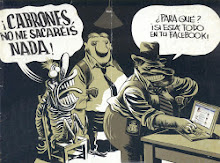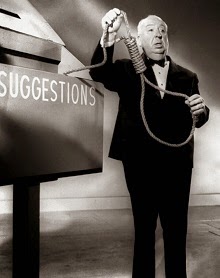Lloyd Sachs
Long before the emergence of the Black Lives Matter movement, novelist Walter Mosley was addressing the violent treatment of African-Americans by police. In "Devil in a Blue Dress" (1990), the first of his 14 novels featuring Ezekiel "Easy" Rawlins, the black janitor-turned-detective gets dragged into an interrogation room in late-'40s Los Angeles and beaten by white cops who clearly have done this sort of thing before.
As time marches forward in this remarkable series, Easy suffers in a multitude of ways from what critic Robert Christgau called "the artificial boundaries of de facto segregation" in postwar Los Angeles. "The air we breathed was racist," Easy says in "White Butterfly," the third book in the series. The stink of political corruption fouls the atmosphere as well.
Easy is no angel in responding to the insidious forces around him. His moral priorities have a way of shifting, sometimes leading him into the darkest corners of his character.
Flash forward to the approximate present, where Joe King Oliver, the black private investigator in Mosley's new novel, is victimized even more brutally by the system. More than a decade ago, King (named after Louis Armstrong's musical mentor and often called by his middle name) was married and a decorated NYPD investigator when his "roaming ways" got him framed for sexual assault by dirty cops who didn't want him sniffing around a drug operation.
Tossed into solitary confinement for three months at Riker's Island — a frightening, shattering, dehumanizing experience from which he hasn't fully recovered — his life is upended. He was kicked off the force. His wife left him. Now, in classic PI fashion (“Sometimes I liked to pretend that I was a detective out of a book”), he works alone out of a walkup in Brooklyn Heights. Business is slow. He listens to modern jazz (mostly Thelonious Monk) and reads Tolstoy and Hermann Hesse. His precocious teenage daughter, whom he adores, helps him out.
When he gets a chance, after all these years, to even the score against the cops responsible for setting him up, he doesn't squander it. In what proves to be a related case, he is hired to help A Free Man, a militant black activist on death row for killing two abusive policemen in self-defense.
In going after the baddies, in halls of power as well as on the meanest of streets, King knows better than to take the high road. “Fighting a war beyond the laws that once claimed my allegiance,” he descends quite literally into a black underground, meeting in cellars with hardened types who might not think twice about killing him in other circumstances but come to his aid now. The psycho killer Melquarth Frost, whose methods, if not his intellect, brings to mind Easy Rawlins' trigger-happy pal, Mouse.
"Down the River Unto the Sea," which is dedicated to Malcolm X, Medgar Evers and Martin Luther King Jr., raises essential questions: What is the proper response to sanctioned hate and violence? What meaning do guilt and innocence have at a time when the law is broken as a matter of course by the people hired or elected to uphold it? Where do you draw the line between corruption and business as usual if you are a beneficiary of the former — as Joe King Oliver is when he gets a renewable 20-year lease because a friend on the force "overlooked" a brutal sexual attack by the landlord's son?
One of the remarkable things about this novel is how soft-spoken and reflective protagonist King remains in recalling the worst moments of his life, employing humor to deflect the pain. His refusal to engage in bitterness — even when he shoots someone — is a reflection of the strength he has gained from his travails and his determination to define himself not as a "broken" victim, but as a survivor.
Mosley's sometimes hilarious hard-boiled prose — one thug "fit his voice like a fist in a Siberian mitten" — and other personal wrinkles he brings to the Raymond Chandler school of crime writing adds to the entertainment. A native of South Central Los Angeles who has long lived in New York, Mosley may be outspoken in real life in calling for social and political change. But in his fiction, story and character come first — in this case in exhilarating fashion.

























.jpeg)








0 comentaris:
Publica un comentari a l'entrada